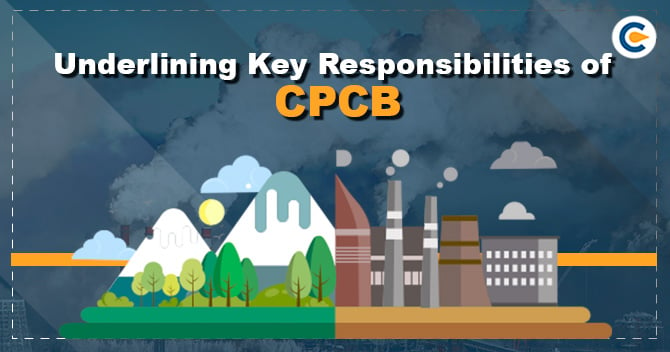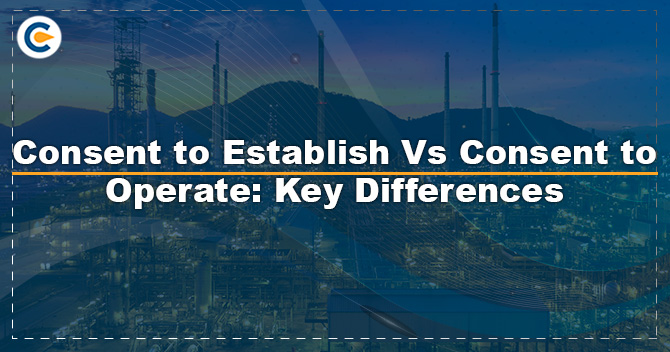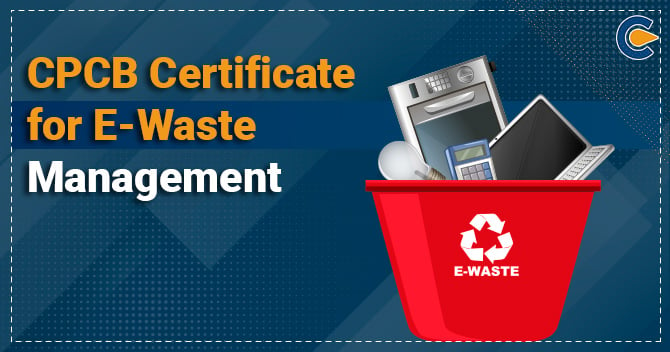The Water (Prevention & Control of Pollution) Act, 1974, passed under Article 252 of the Constitution of India, provided for the establishment of Centre and State levels (Pollution Control Boards). They are formed to promote the cleanliness of streams and wells in the various areas. In this article, we will discuss the Central pollution Control Board and its responsibilities.
What is CPCB?
CPCB stands for Central Pollution Control Board. This statutory body was established in 1974 under the Water (Prevention & Control of Pollution) Act & later handed over with functions & responsibilities under the Air (Prevention & Control of Pollution) Act in 1981. Earlier, the name of CPCB was the Central Board for the Prevention and Control of Pollution, and later it was changed to the Central Pollution Control Board through Water (Prevention & Control) Amendment Act, 1988. Central Pollution Control Board works under the environment, forest, and climatic change ministry.
Objective of CPCB
The objective of the Central Pollution Control Board is to promote cleanliness of streams, wells, etc. in different areas of the States by-
- prevention,
- control, &
- reduction of water pollution, and
- to improve the air quality.
It has its head office in New Delhi, seven zonal offices, and some laboratories. Now let’s move to next section that briefs out the responsibilities of CPCB in detail.
Responsibilities of CPCB
CPCB classifies the activities of the State Pollution Control Boards by providing technical assistance and guidance and also resolves disputes among them. It also offers technical assistance to the Ministry of Environment and Forests of the provisions of the Environment Protection Act, 1986[1]. The primary responsibilities of the CPCB, as explained in the Water (Prevention and Control of Pollution) Act, 1974, & the Air (Prevention and Control of Pollution) Act, 1981 is to:
- Advancing the sanitation of streams and wells in various areas of the States by eliminating, controlling, and reducing water pollution.
- Categorizing pollution-prone industries based on pollution index. The some category includes; Red, Orange, green, and white.
- Amending rules and norms concerning grant of NOC (CTE and CTO) and EPR authorization time to time.
- Releasing state-wise SOPs (Standard Operating Procedure) for grant of registration.
- Enhancing the quality of air and preventing, controlling, or decreasing air pollution in the country.
- Plan and implement training of persons involved in programs for prevention, control, or reduction of water and air pollution.
- Organizing and administering nationwide programs to eliminate, control or diminish water and air pollution.
- Directs the central government on any matter related to preventing and controlling water and air pollution and advancing surface waters and air quality.
- Also, it is the responsibility of the CPCB to Coordinate with the activities performed by the State Boards.
- CPCB has to deliver technical aid and direction to the State Boards, take-out, and sponsor investigation and research relating to water and air pollution problems. Also, they shall Collect, compile, and publish technical and statistical data, prepare manuals and code of conduct.
- CPCB shall create a complete mass awareness program on control, elimination, or reduction of water and air pollution through mass media.
- Also, it is CPCB’s responsibility to start or recognize laboratories that enable the Board to perform such other functions as & when prescribed by the government of India.
- Put together the manuals, methods, and guidance relating to treatment & disposal of sewage & trade effluents as well as for stack gas cleaning devices, stacks, & ducts;
- Disseminate the information in respect of matters relating to water and air pollution and their prevention and control;
Responsibilities of CPCB towards Public
- The CPCB led Task Force has the responsibility to instruct the public about the risk of exposure to high pollution levels. Also, the authority shall advise the public to follow these below-mentioned things-
- Restriction in hotels and open eating areas for coal/firewood.
- Restriction on garbage burning in the waste disposal
- Keeping yourself away from excessive and chronic exposure to pollution.
- To stop all the outside activities and sports events during severe or poor conditions
- Intimate the emissions from vehicles, power plants, and waste burning to the respective control rooms.
- Keep away from the use of diesel and kerosene generators.
- CPCB is responsible for advising the SPCB and the public and completing a mass awareness program on control, elimination, or reduction of water and air pollution through mass media.
Delegation of Powers by CPCB-
As per policy decision of the Government of India, the Central Pollution Control Board delegates its powers & functions from time to time under –
- Section 4, Sub Section 4 of The Water (Prevention and Control of Pollution) Act, 1974 and
- Section 6 of The Air (Prevention and Control of Pollution) Act, 1981 concerning various Union Territories to specific Pollution Control Committees under the administrative control of local Administration.
Conclusion,
Responsibilities of CPCB are not only confined to alleviation of environmental hazards or creating EPR targets. It also focuses on teaming up with other government agencies and ministries to advocate its objective and create transparent legal structure for pollution prone industries.
Read our Article:Renew Pollution Control Board Certificate: How to obtain Consent to operate?











